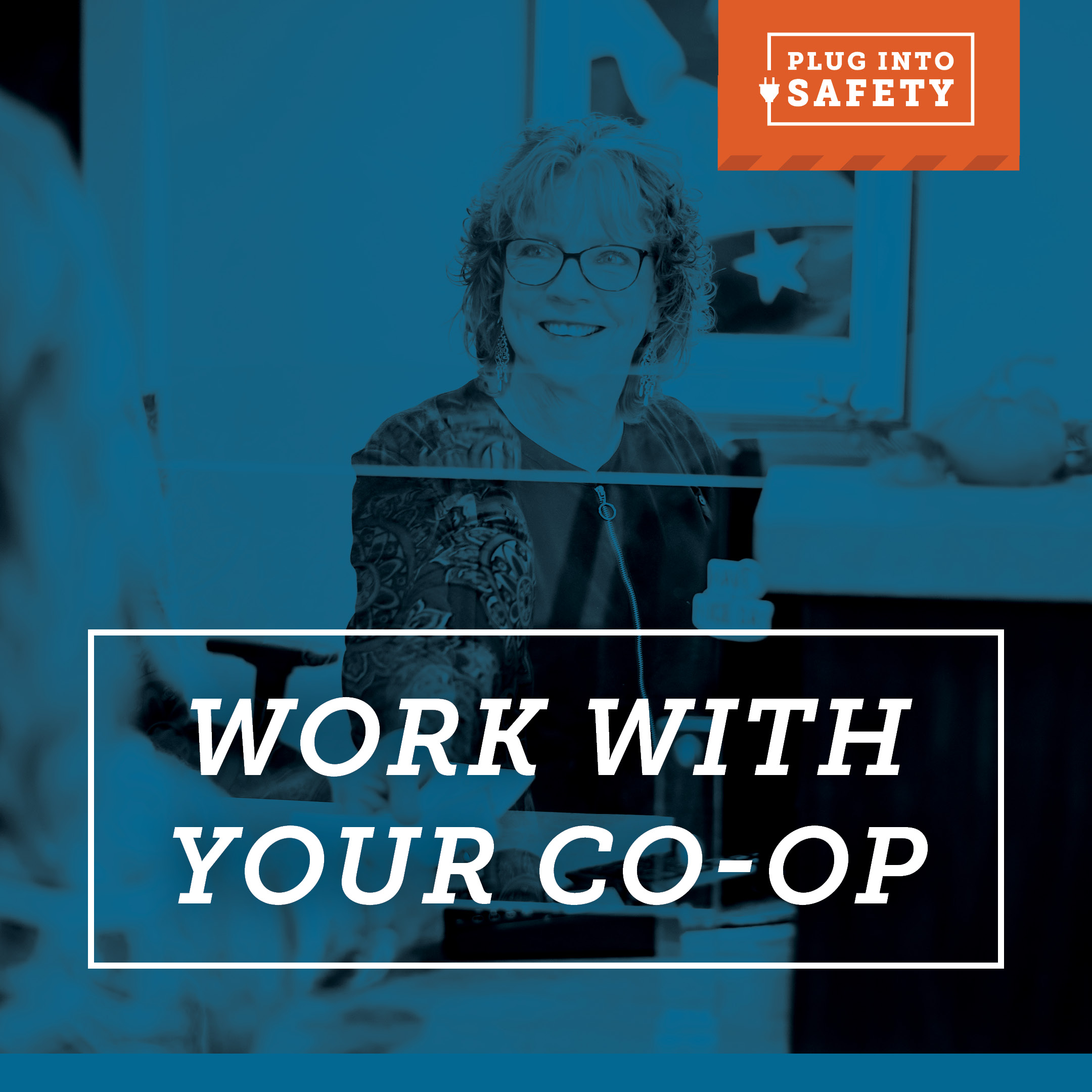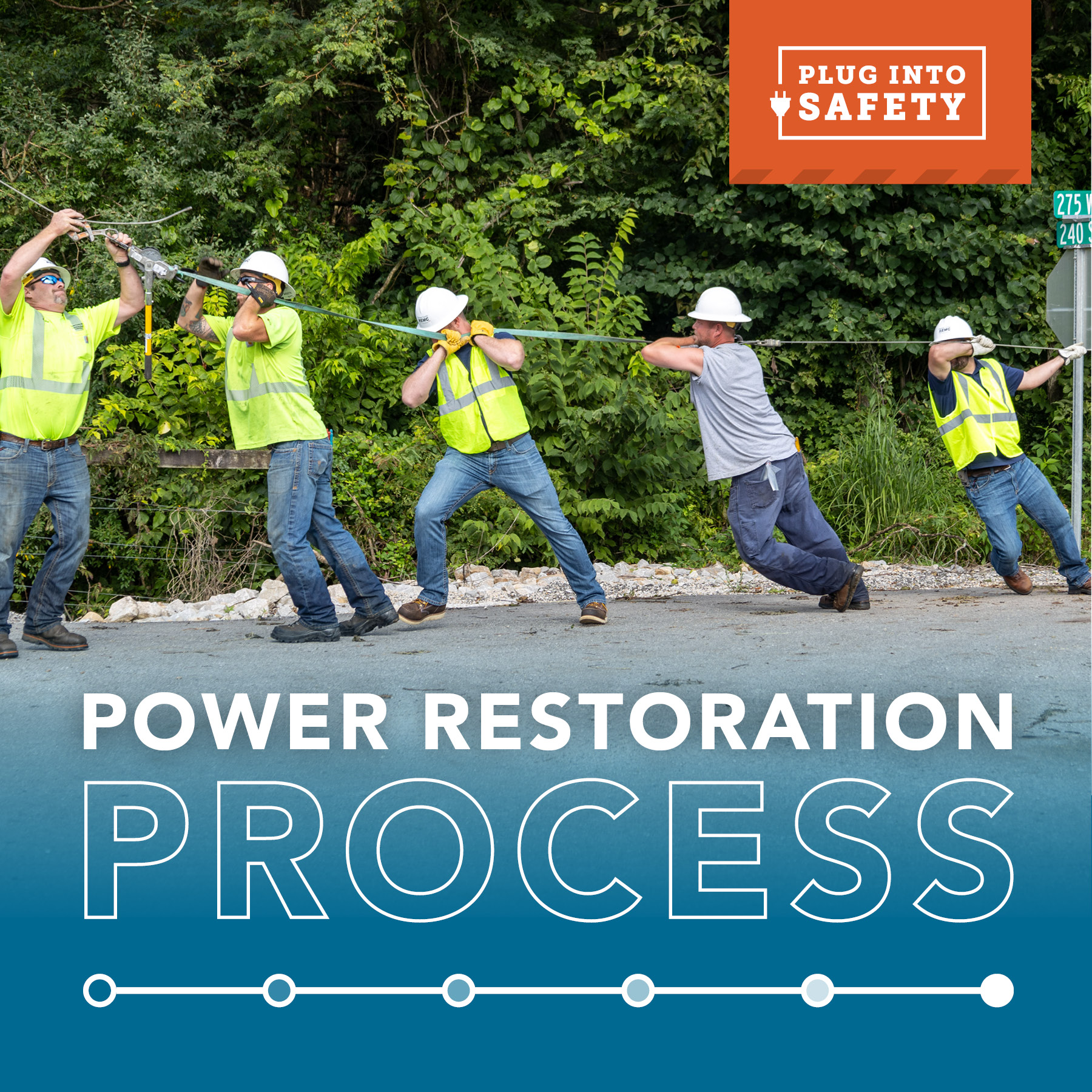Winter weather in Indiana brings more than just snow. With those white flakes come an onslaught of sleet, ice and freezing rain, often leaving Hoosier roadways slick and dangerous. High winds and heavy ice can also take their toll, blowing over poles and transformers, knocking trees onto power lines or causing lines to ice over and sag or fall.
Emergencies involving electricity are a given this time of year. Whether you are in involved in or witness an auto accident, come across a downed power line, or arrive on either scene as an emergency first responder, Indiana Electric Cooperatives wants to make sure you know how to stay safe.
Keep these tips in mind when arriving at the scene of an emergency with downed power lines. Taking these precautions could save your life or the life of others.
- Contact your local electric utility. If you see a downed power line, call your electric utility right away.
- Stay away. Assess current and potential hazards while avoiding all power lines, including those on poles and downed lines. Do not attempt to move a downed power line or anything else in contact with it. Never park vehicles under power lines or drive over downed lines. Stay at least 30 feet away from downed electrical lines and keep others safely away. If you are inside your car and a power line falls on it, stay in your car. Warn others to stay away from the car.
- Use caution. Assume all lines are energized. Even if the power is out, they can become re-energized at any time, automatically and/or by remote control. The ground around power lines – up to 35 feet away – may be energized. If you see someone who is in direct or indirect contact with the downed line, do not touch the person. You could become the next victim.
- Protect yourself. Do not rely on rubber boots, gloves, raincoats or wire cutters for protection. Avoid contact with wires, a victim, or vehicle that may be energized. The proper way to move away from the power line is to shuffle away with small steps, keeping your feet together and on the ground at all times. This will minimize the potential for a strong electric shock.
By keeping these safety points in mind, you can minimize your risk on the scene of an accident. Indiana Electric Cooperatives especially wants to remind our local police, firefighters and emergency personnel to stay safe around electrical hazards. “When you are the first responder to an electrical emergency, your first priority is to minimize the risk to the public and yourself,” said Rick Coons, CEO of Indiana Electric Cooperatives. “We encourage you to stay away, keep others safe and contact your local cooperative right away.”
Sources:
Hawthorne, Mark R. (1999). First Unit Responder. Boca Raton, FL: CRC Press LLC.
Live Line Demo. http://www.livelinedemo.com/
Nueces Electric Cooperative. http://www.nueceselectric.org/





